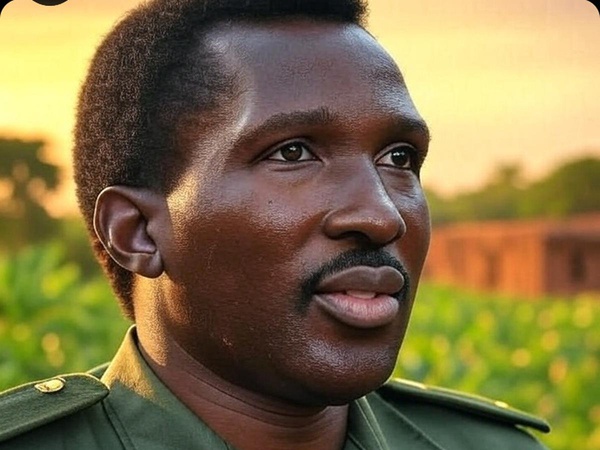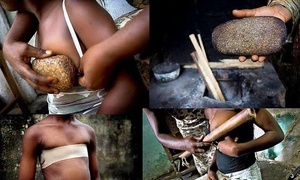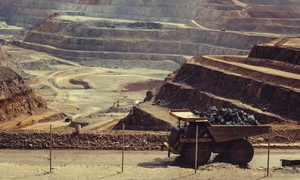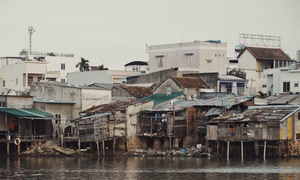<p>Background on Thomas Sankara and His Assassination
</p><p>Thomas Sankara, a Marxist and Pan-Africanist revolutionary, served as president of Burkina Faso from 1983 to 1987. He rose to power through a popularly supported coup and implemented sweeping social, economic, and ecological reforms aimed at reducing Western influence, promoting self-reliance, and improving conditions for the poor. His anti-imperialist rhetoric and policies, including his rejection of International Monetary Fund (IMF) loans and criticism of French neocolonialism, made him a polarizing figure both domestically and internationally. On October 15, 1987, Sankara was assassinated during a coup led by his close associate, Blaise Compaoré, who subsequently ruled Burkina Faso for 27 years.
</p><p>
Evidence Supporting the Claim of French and CIA Involvement
</p><p>French Involvement:
</p><p>Sankara’s Anti-French Stance: Sankara’s policies directly challenged French economic and political interests in West Africa. He sought to reduce Burkina Faso’s dependence on France, its former colonial power, and criticized France’s role in perpetuating neocolonialism. His widow, Mariam Sankara, accused France of masterminding his assassination, a claim echoed by some activists and scholars.
</p><p>
Declassified Documents: In 2016, Burkina Faso requested France to declassify military files related to Sankara’s assassination. These documents, released in stages by 2021, reportedly contained new information, though specific details implicating France have not been publicly confirmed by official sources. Lawyers for the Sankara family noted that the documents suggest foreign involvement, but no “smoking gun” has been revealed.
</p><p>
Historical Context: France had a history of intervening in its former colonies to protect its interests. For example, Ivory Coast, a French ally under President Félix Houphouët-Boigny, opposed Sankara’s reforms, which threatened the regional status quo. Posts on X and some sources allege that France supported Compaoré’s coup, possibly providing funds or diplomatic recognition, as Compaoré later strengthened ties with France.
</p><p>
Documentary Allegations: A 2021 Italian documentary, African Shadows by RAI3, alleged French secret service involvement in Sankara’s assassination, citing a source claiming France supported Compaoré’s coup to use Burkina Faso as a base for regional operations. However, these claims rely on unverified testimony and lack corroborating evidence from primary sources.
</p><p>CIA Involvement:
</p><p>Cold War Context: During the Cold War, the CIA was known to target left-leaning leaders perceived as threats to U.S. interests, particularly those aligned with figures like Muammar Gaddafi, with whom Sankara had ties. Declassified U.S. diplomatic cables indicate that the U.S. Embassy in Ouagadougou considered a coup likely and maintained informants within Burkina Faso’s military, suggesting awareness of political instability.
</p><p>
Testimony from Associates: Momo Jiba, an aide to Liberian warlord Charles Taylor, claimed the assassination was a “CIA operation.” Prince Johnson, another Taylor associate, implicated Taylor, Compaoré, and foreign actors in the coup, though these claims remain unverified.
</p><p>
U.S. Support for Compaoré: After Sankara’s death, the U.S. quickly backed Compaoré, who was seen as more aligned with neoliberal policies favored by the U.S. and France during the Reagan administration. This rapid support has fueled speculation of prior U.S. knowledge or involvement.
</p><p>
Similar Cases: The claim draws parallels with other alleged CIA-backed operations, such as the assassination of Patrice Lumumba in the Congo, where Western powers were implicated. However, no direct evidence, such as declassified CIA documents, explicitly links the agency to Sankara’s assassination.
</p><p>Counterarguments and Lack of Definitive Evidence
</p><p>Lack of Conclusive Proof:
</p><p>Despite allegations, no definitive evidence—such as official documents or corroborated testimony—directly confirms French or CIA orchestration of the coup. The declassified French documents and U.S. cables provide circumstantial evidence but no “smoking gun.”
</p><p>
The 2021-2022 trial of Blaise Compaoré and 13 others in Burkina Faso focused on their direct roles in the assassination but did not conclusively establish foreign involvement. Compaoré, tried in absentia, and his security chief, Hyacinthe Kafando, were convicted, but the trial left questions about external actors unanswered.
</p><p>
The complexity of regional politics, including involvement of figures like Charles Taylor and Liberian warlords, suggests multiple actors may have had motives, diluting the focus on France and the CIA.
</p><p>
Alternative Motives:
</p><p>Compaoré’s coup could have been driven by personal ambition or internal power struggles rather than foreign directives. He cited deteriorating relations with neighboring countries as a justification, though he never acknowledged orchestrating a coup.
</p><p>
Sankara’s policies alienated domestic elites, including tribal leaders and the former ruling class, who may have supported Compaoré independently of foreign influence.
</p><p>Skepticism About Sources:
</p><p>Claims on some media, like the RAI3 documentary, rely on unverified testimonies or secondhand accounts, which are prone to bias or exaggeration. For example, Momo Jiba’s allegations lack corroboration from official records.
</p><p>
The narrative of French and CIA involvement aligns with anti-imperialist sentiments but may oversimplify a multifaceted event involving local, regional, and international actors.
</p><p>
Conclusion
</p><p>The claim that Thomas Sankara was assassinated in a French- and CIA-backed coup is plausible but not definitively proven. Circumstantial evidence—Sankara’s anti-Western policies, French and U.S. interests in the region, declassified documents suggesting prior knowledge, and testimonies from figures like Prince Johnson and Momo Jiba—supports the possibility of foreign involvement. However, the absence of concrete evidence, such as explicit documentation or corroborated admissions, means the claim remains speculative. The 2021-2022 trial provided justice for Compaoré’s role but left questions about external actors unresolved, particularly as France has not acknowledged involvement and the CIA’s role is based on unverified allegations.
</p><p>
For a definitive answer, further declassification of French and U.S. documents or credible whistleblower testimony would be needed. Until then, the claim should be approached with cautious skepticism, recognizing both the geopolitical context and the limitations of available evidence.
</p><p>
</p><p>
</p><p>
</p><p>
</p>


















Comments